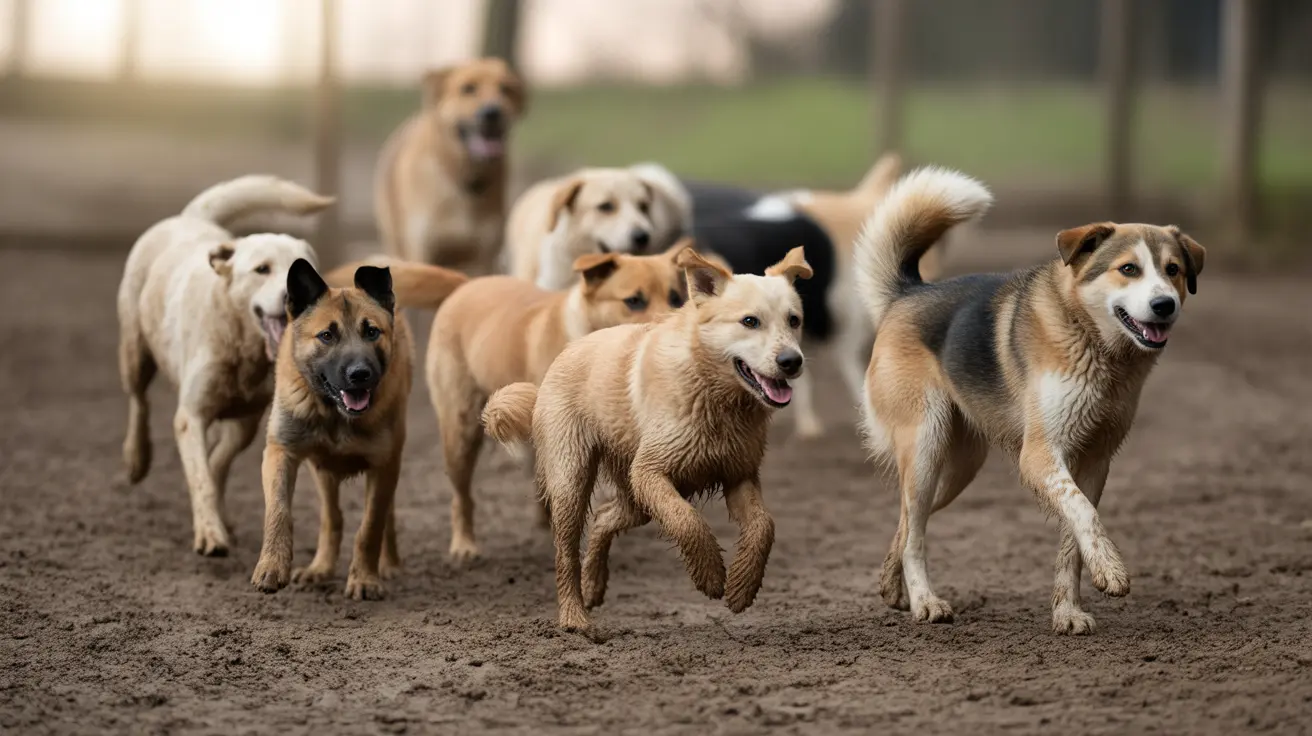Dog Breeds Prone to Depression: What You Should Know
Just like humans, dogs can experience depression. This emotional response is often triggered by significant changes in their environment or routine. While all dogs are susceptible, certain breeds are more prone to depression due to their temperament, intelligence levels, and emotional sensitivity.
Understanding Canine Depression
Depression in dogs presents with symptoms similar to those in humans. Dogs may become withdrawn, lose interest in activities they once enjoyed, change their eating or sleeping habits, or exhibit destructive behaviors.
- Withdrawal or increased clinginess
- Lack of interest in play or walks
- Changes in appetite or sleep patterns
- Increased irritability or destructive actions
It’s essential to differentiate between medical issues and depression; a vet should rule out physical ailments before confirming depression.
Dog Breeds More Sensitive to Depression
While any breed can become depressed, some are more emotionally sensitive and thus more susceptible.
- Border Collies – Highly intelligent and in need of mental stimulation, they can grow depressed without enough engagement.
- Labrador Retrievers – Loyal and family-oriented, they may suffer emotionally from the loss of a companion or human.
- German Shepherds – Strong bonds with owners mean they can develop depression if left alone frequently.
- Basset Hounds – Known for being calm and sensitive, changes in their environment can deeply affect them.
- Cavalier King Charles Spaniels – Thrive on companionship; time spent alone may lead to anxiety or sadness.
- Poodles – Intelligent and emotionally perceptive; shifts in owner behavior can impact them significantly.
- Dachshunds – These small but energetic dogs may become upset with changes in attention or home routine.
- Collies – Loyal and gentle, Collies need consistency and can struggle with disruptions in their daily life.
Causes of Depression in Dogs
Several factors may contribute to depression in vulnerable breeds:
- Loss of an owner or another pet
- Major environmental changes like moving or new household members
- Routine disruption such as a change in owner work schedule
- Lack of stimulation both physical and mental
- Social isolation or long periods alone
- Physical pain from injury or illness
- Owner stress that dogs can mirror emotionally
How to Help a Depressed Dog
If your dog is showing signs of depression, there are several steps you can take to support them:
- More quality time through engaging walks or car rides
- Increase play and mental stimulation, including puzzles and new environments
- Positive reinforcement for good moods and behaviors
- Consistent routine to provide certainty
- Social interaction with other dogs if your pet enjoys company
- Comfort items, like your worn clothing, when you're away
Avoid reinforcing withdrawn behavior with excessive treats or special attention when the dog is acting sad. Instead, reward signs of engagement and normal behavior.
When to Seek Veterinary Help
If your dog's depression is chronic or severe, veterinary intervention may be necessary. Vets might prescribe medications common in human treatment under professional supervision, such as:
- Fluoxetine (Prozac)
- Paroxetine (Paxil)
- Sertraline (Zoloft)
- Clomipramine (Anafranil)
- Amitriptyline
- Diazepam (Valium)
- Alprazolam (Xanax)
These medications are usually administered short-term (six to twelve months), often combined with behavioral therapy. Always follow veterinary guidance, as some human medications are dangerous to dogs in incorrect doses.
Preventing Depression in Vulnerable Breeds
- Daily exercise with environment exploration
- Consistent routines and gradual environmental changes
- Regular mental stimulation through training or puzzles
- Social time with dogs or humans as appropriate
- Enrichment materials when the dog is home alone
Understanding the emotional needs of your dog—especially breed-specific tendencies—can help prevent and manage depression.
If your dog continues to seem sad despite your attention, consult your veterinarian or an animal behaviorist for tailored advice.





